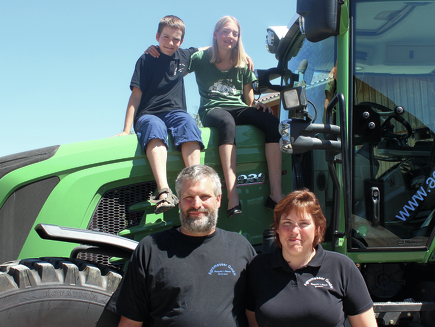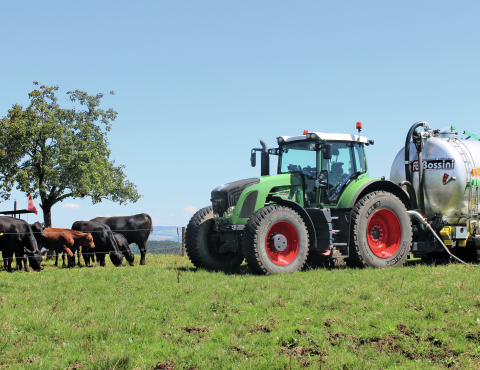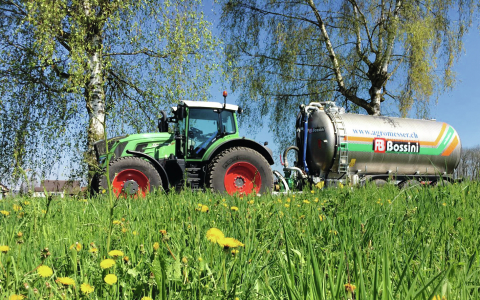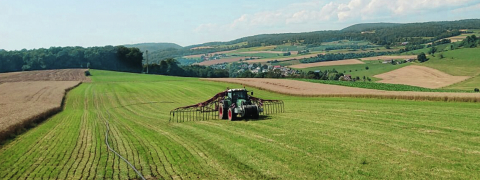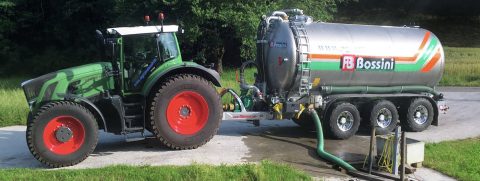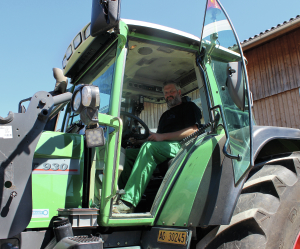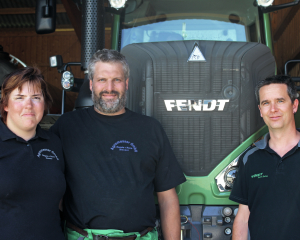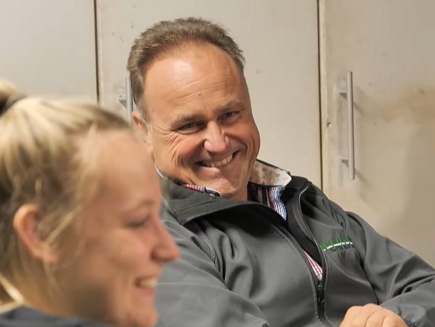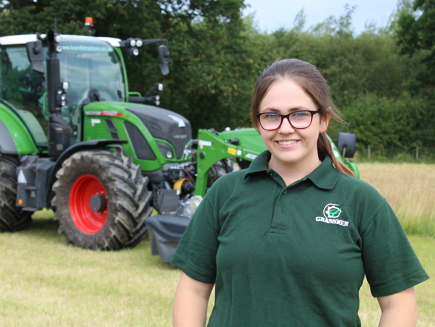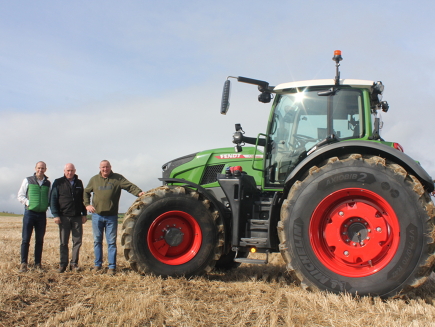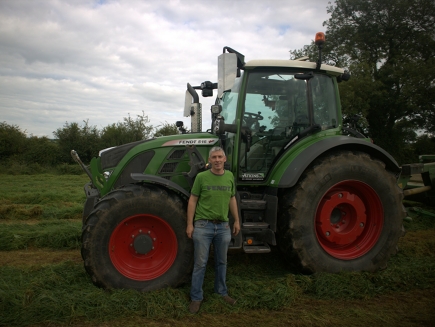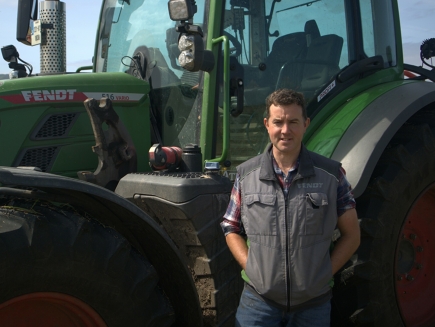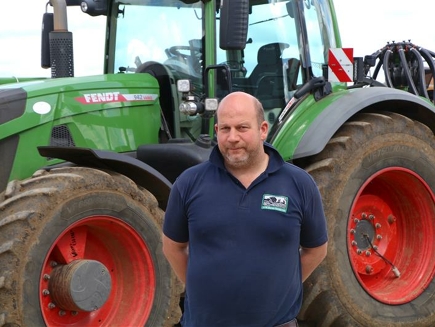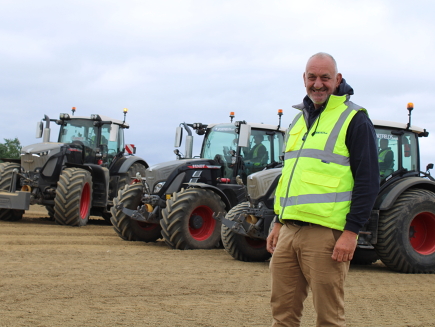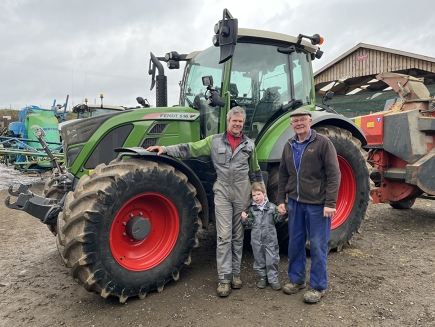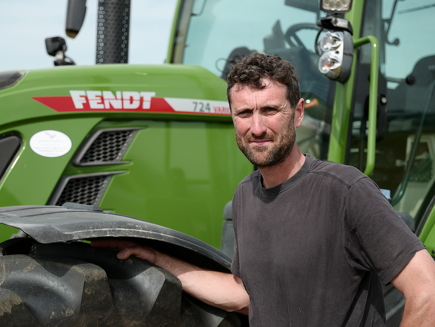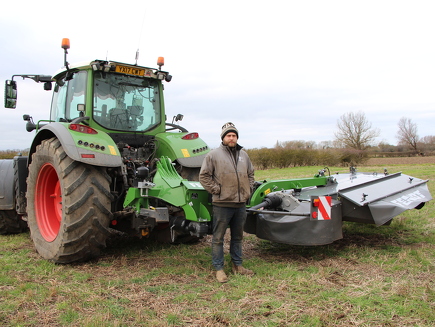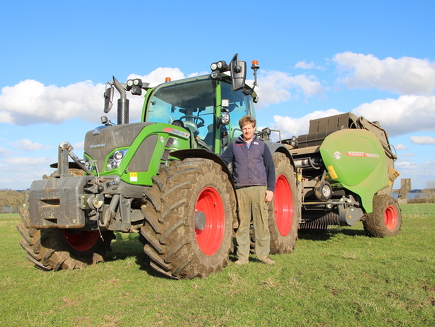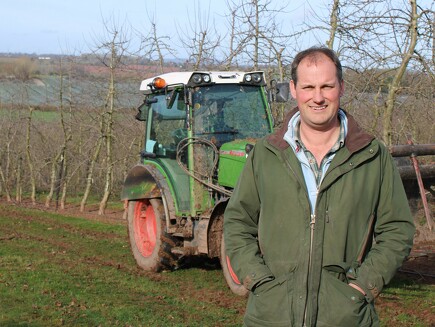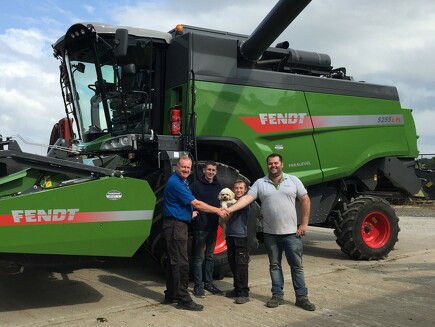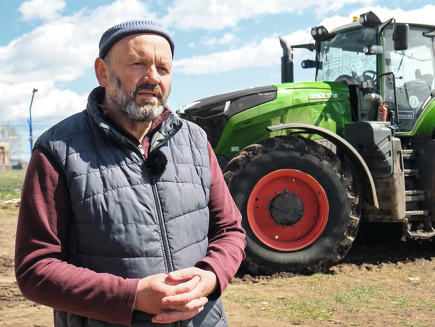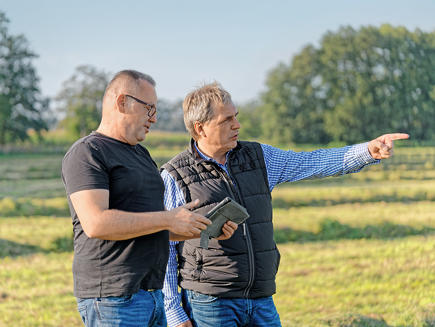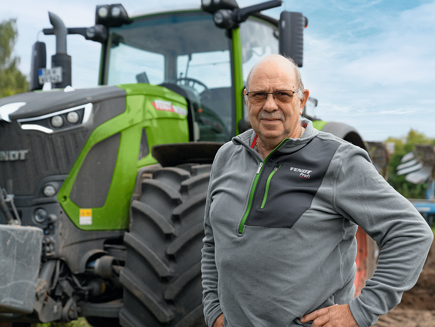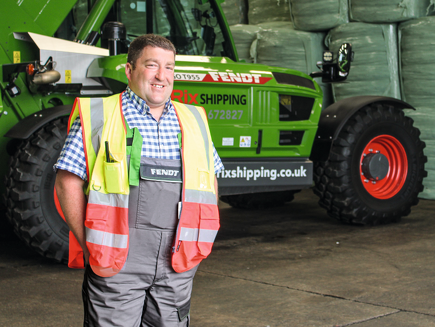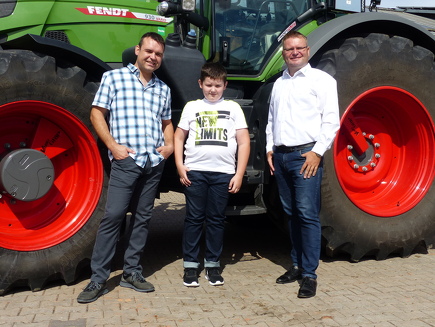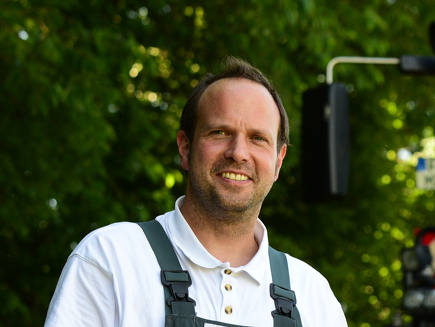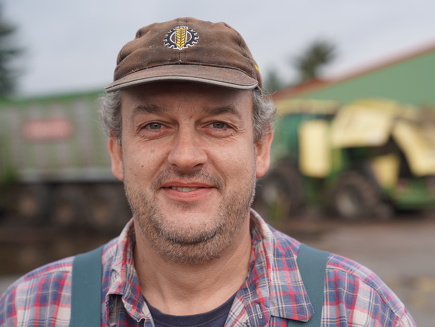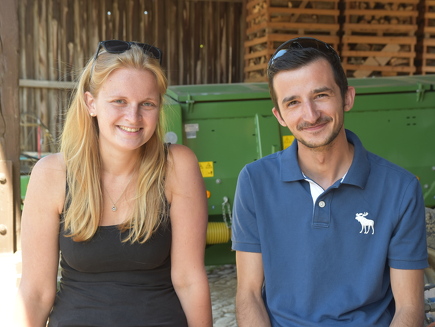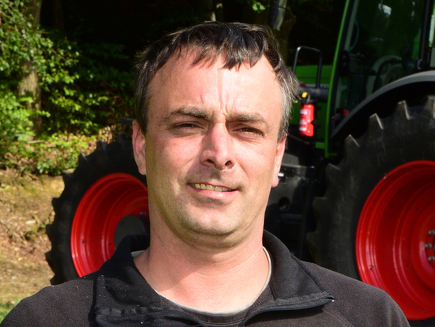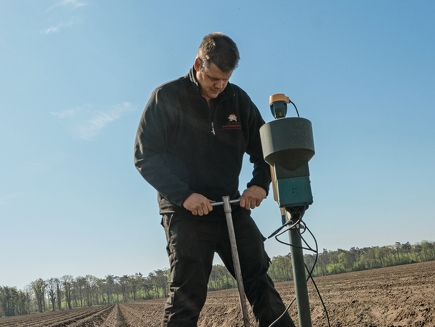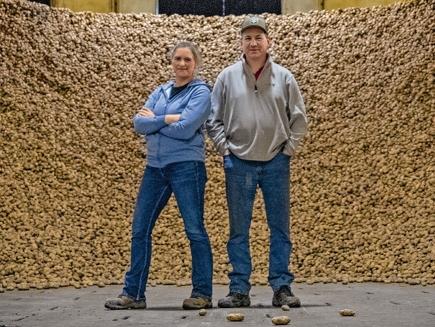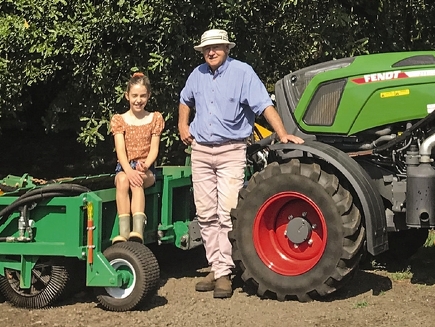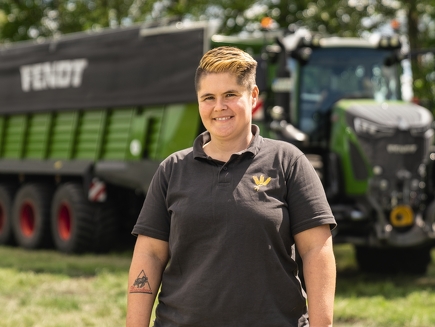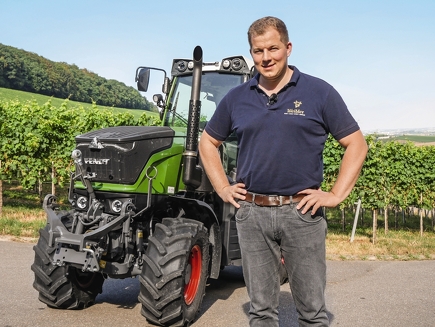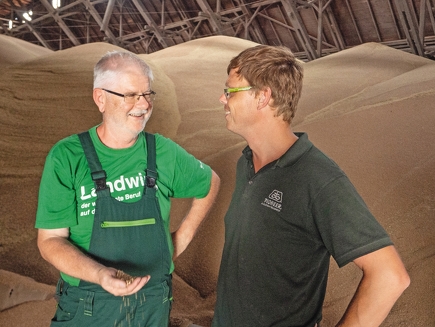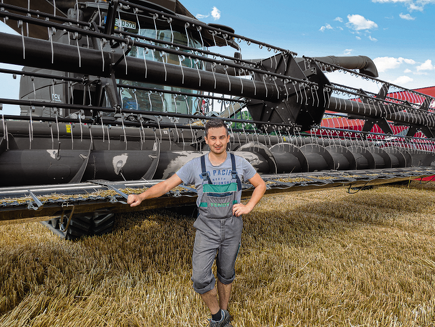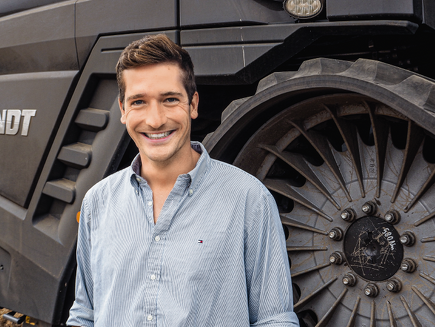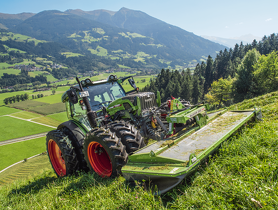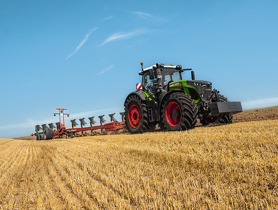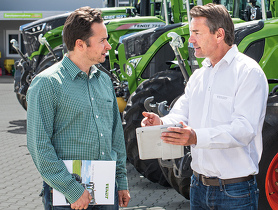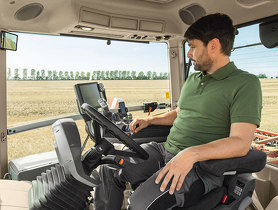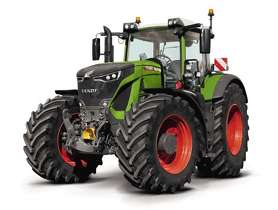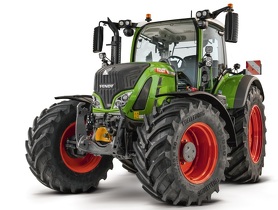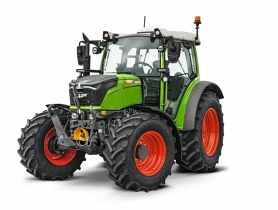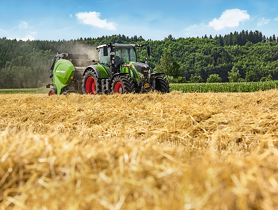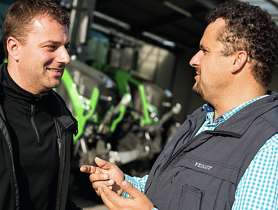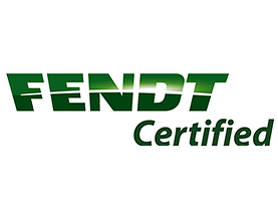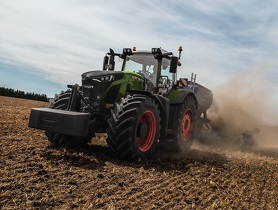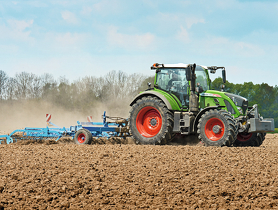That the Agromesser company is a true specialist in slurry and fermentation residues, can be seen in many areas. The slurry is not brought out onto the field with slurry tankers as is usual, but with a hose system. “That means that we drive an empty tractor with a mounted distribution device around in the field and pull a hose behind us.” Each tractor and trailer, the Messers have three in operation, carries up to 900 metres of hose. The slurry is delivered by pumps with a 25-cubic metre capacity, which are on the slurry tankers that are standing at the edge of the field. Two to three tractors and trailers, comprising a Fendt from the 900 Vario series and a Tridem slurry tanker, bring the slurry to the field. “This way we can stay on the road with our large transport volumes and are very flexible on small as well as large lots of land. This also prevents soil compaction and gives us many more days of operation, since we can also drive on days with bad weather.
Another advantage is that with the mounted hose system, we can apply slurry on slopes using relatively small tractors, our 716 Vario and the 411 Vario. These areas would otherwise only be used for grazing.” Crucial for the high efficiency of the system is the very powerful pump system on the slurry tankers. René Messer developed the system in collaboration with the Bossini company. The Agromesser company is also the primary importer for Bossini. “The tank is filled in just seven minutes and emptied on the field in barely twelve minutes. This is made possible by the combination of a vacuum pump and a centrifugal pump. First the tank is filled with a vacuum, until the pump is really working hard, then the high-capacity centrifugal pump goes into operation, which cuts the slurry some 5000 times a minute. The slurry does not stick to the grass as much, it travels through the hoses better and can be pumped faster,” says Messer, explaining the advantages.

